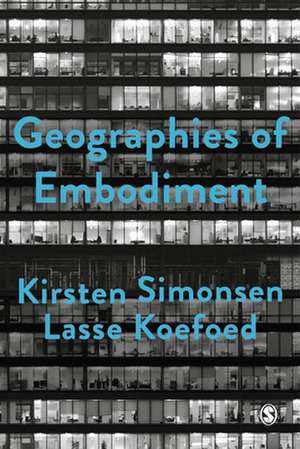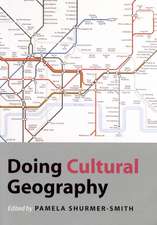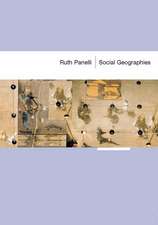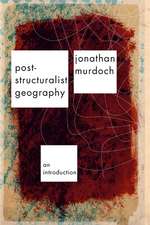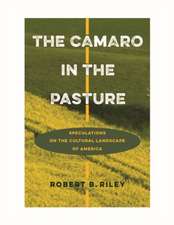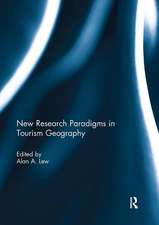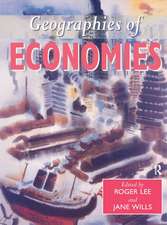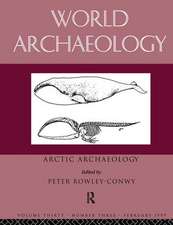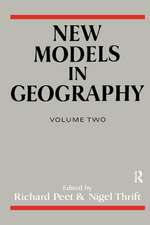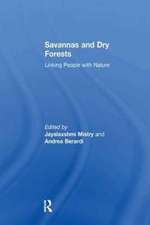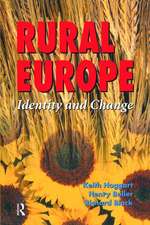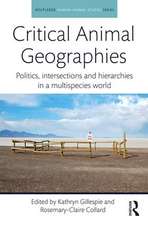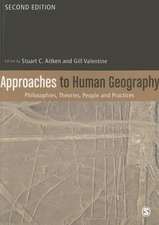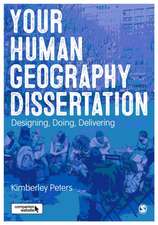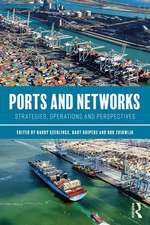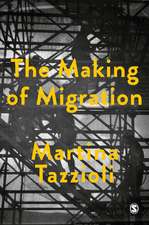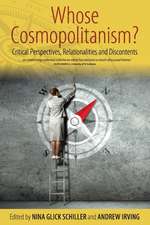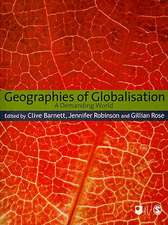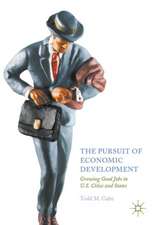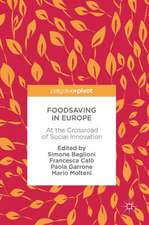Geographies of Embodiment: Critical Phenomenology and the World of Strangers: Society and Space
Autor Kirsten Simonsen, Lasse Koefoeden Limba Engleză Paperback – 28 ian 2020
These arguments are situated across disciplinary boundaries, at the borderline between between philosophy and social science that is associated to critical phenomenology, and reaches across Human Geography, Sociology, Philosophy, Anthropology, Cultural Studies and Urban Studies.
| Toate formatele și edițiile | Preț | Express |
|---|---|---|
| Paperback (1) | 278.89 lei 3-5 săpt. | +13.97 lei 6-12 zile |
| SAGE Publications – 28 ian 2020 | 278.89 lei 3-5 săpt. | +13.97 lei 6-12 zile |
| Hardback (1) | 752.88 lei 6-8 săpt. | |
| SAGE Publications – 28 ian 2020 | 752.88 lei 6-8 săpt. |
Preț: 278.89 lei
Nou
Puncte Express: 418
Preț estimativ în valută:
53.36€ • 55.72$ • 44.17£
53.36€ • 55.72$ • 44.17£
Carte disponibilă
Livrare economică 14-28 martie
Livrare express 27 februarie-05 martie pentru 23.96 lei
Preluare comenzi: 021 569.72.76
Specificații
ISBN-13: 9781526463593
ISBN-10: 1526463598
Pagini: 168
Dimensiuni: 156 x 234 x 10 mm
Greutate: 0.23 kg
Ediția:1
Editura: SAGE Publications
Colecția Sage Publications Ltd
Seria Society and Space
Locul publicării:London, United Kingdom
ISBN-10: 1526463598
Pagini: 168
Dimensiuni: 156 x 234 x 10 mm
Greutate: 0.23 kg
Ediția:1
Editura: SAGE Publications
Colecția Sage Publications Ltd
Seria Society and Space
Locul publicării:London, United Kingdom
Recenzii
Geographies of Embodiment by Koefoed and Simonsen presents articulate and sophisticated insights into issues about encounters, space and bodies through a practice-orientated reading of phenomenology. The book draws upon four projects over the last fifteen years about cities, encounters and nationalism to offer critical and engaging readings of encounters, embodiment, and the politics of urban life. This is an important text for critical and engaged scholars working in human geography, urban studies and racial and ethnic studies.
Peter Hopkins, Professor of Social Geography, Newcastle University
Rarely do I think that any book is a ‘must-read’, but that is surely the case with Geographies of Embodiment: Phenomenology and Strangers. Located on the border between philosophy and social science, this is a deeply theoretical book that is anchored by significant empirical research. Koefoed and Simonsen have written a powerful argument for a new humanism, one that is rooted in complex critical theories and phenomenological philosophies, yet is supported by important empirical work on the geographies of embodiment, practice and difference. The result is a book that makes us rethink present understandings of humanism, especially as the ‘human’ in humanism is (re)made in embodied spatial practice.
Lawrence D. Berg is Professor in Critical Geography at the University of British Columbia
Peter Hopkins, Professor of Social Geography, Newcastle University
Rarely do I think that any book is a ‘must-read’, but that is surely the case with Geographies of Embodiment: Phenomenology and Strangers. Located on the border between philosophy and social science, this is a deeply theoretical book that is anchored by significant empirical research. Koefoed and Simonsen have written a powerful argument for a new humanism, one that is rooted in complex critical theories and phenomenological philosophies, yet is supported by important empirical work on the geographies of embodiment, practice and difference. The result is a book that makes us rethink present understandings of humanism, especially as the ‘human’ in humanism is (re)made in embodied spatial practice.
Lawrence D. Berg is Professor in Critical Geography at the University of British Columbia
Cuprins
Introduction
Chapter 1. Figuring the ground
a.What is critical phenomenology
b.Critical phenomenology as a ‘New Humanism’
Chapter 2. Bodies and embodiment
a.Thinking the body
b.Embodied Identities
c.The temporality and spatiality of the body (including case ‘(re)scaling identities)
d.Affectivity and emotions
Chapter 3. Encountering the Other
a.The concept of encounter
b.Different modes of encounter
c.Collective planned encounters
d.Encounters with authorities
e.Banal everyday encounters
Chapter 4. Urban Perspectives
a.The Flesh of the urban
b.The urban as a world of strangers
c.From invisibility to visibility: Opening of a purpose-built mosque in Copenhagen
Chapter 5: Political Perspectives
a.Everyday politics
b.Everyday nationalism
e.Politics of hospitality
Chapter 1. Figuring the ground
a.What is critical phenomenology
b.Critical phenomenology as a ‘New Humanism’
Chapter 2. Bodies and embodiment
a.Thinking the body
b.Embodied Identities
c.The temporality and spatiality of the body (including case ‘(re)scaling identities)
d.Affectivity and emotions
Chapter 3. Encountering the Other
a.The concept of encounter
b.Different modes of encounter
c.Collective planned encounters
d.Encounters with authorities
e.Banal everyday encounters
Chapter 4. Urban Perspectives
a.The Flesh of the urban
b.The urban as a world of strangers
c.From invisibility to visibility: Opening of a purpose-built mosque in Copenhagen
Chapter 5: Political Perspectives
a.Everyday politics
b.Everyday nationalism
e.Politics of hospitality
Notă biografică
Kirsten Simonsen is Professor in Social and Cultural Geography at Department of People and Technology, Roskilde University, Denmark. Her research concerns issues of philosophy of geography, Nordic geography, spatial conceptualizations, urban theory and everyday practices, and the living of racialized Others in contemporary European Cities.
Descriere
Geographies of Embodiment provides a critical discussion of the literatures on the body and embodiment, and humanism and post-humanism, and develops arguments about “otherness” and “encounter” which have become key ideas in urban studies, and studies of the city.
